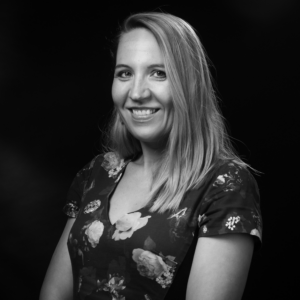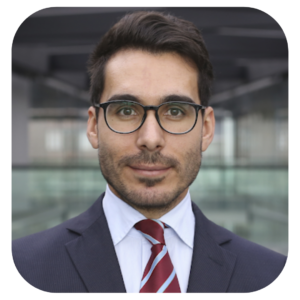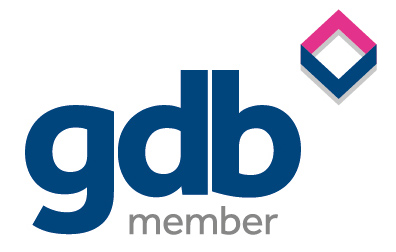Harvey John
Unit 2 Ferry Wharf
Hove Enterprise Centre
Basin Road North
Portslade, East Sussex
BN41 1BD
In the latest edition of The Tax Expat, we welcome Joao Andre Coelho, an Indirect Tax Manager currently residing in the UK. We appreciate you contributing to our series Joao, your career to date paints an interesting picture. Having spanned across Portugal and the UK, with a secondment thrown in for good measure, I look forward to hearing all about it!
Joao, your experience speaks for itself, but for those who don’t know you, can I leave it to you to introduce yourself?
Of course, thank you for this opportunity.
I started my indirect tax career in Deloitte, Portugal, in 2007 after graduating from University with a degree in Management. After 3 years in this position, I moved to an in-house role with Sonae Sierra, an international shopping centre retailer, in which I had the opportunity to work for 5 years in a wider tax role (Indirect tax, direct tax, TP, withholding tax, stamp duty) and managed to complete a post-graduate in Tax, Accounting and Finance. I subsequently decided I wanted to make an international move, to live and work in London, where I currently work as an Indirect Manager for EY in London, within the EMEA Tax Centre (ETC), specializing in Global Compliance & Reporting (GCR) for indirect taxes. I’ve thoroughly enjoyed my journey to date since my first day as a tax professional.
So, you started your VAT career in 2007 with Deloitte, was it a particular struggle to open doors into the tax world, or did you find it relatively smooth?
To be honest, it wasn’t easy. At university, I learnt a multitude of subject matter, however, this didn’t prepare me for the practical application in the real world, especially for a big firm such as Deloitte. On reflection, I feel that my initial professional experience at Deloitte allowed me to develop the necessary skills for my career today. I feel very grateful for this experience, in which I’ve learnt technical indirect tax skills and, most importantly, how to work and communicate with others within a business environment, such as managing expectations, flagging struggles, and discussing risks and opportunities. As a junior consultant, my life wasn’t easy in a fast-paced environment, however, it helped me prepare for my future career and my next professional step, which was working with Sonae Sierra.
You left Deloitte to join Sonae Sierra, quite the change! How did you find the change going from the colossal corporate structure of the Big 4, to this international real estate company?
After improving my indirect tax skills with Deloitte for 3 years, I felt ready for a new challenge, for something different. I was having some doubts as to whether I should continue my career in tax prior to the opportunity with Sonae Sierra arising. However, the new role involved working with other taxes, thus allowing me to explore if this was indeed the career I wanted to pursue. Essentially, with respect to my future career, joining Sonae Sierra was quite a milestone as it cemented in me that I did want to pursue and progress as a tax professional.
Sonae Sierra allowed me to experience a new environment and different culture that I identified with and where I developed new skills. During my time there, I worked independently across the business with multiple teams such as HR, AP & AR teams, whilst building an internal network. Sonae Sierra was already a very structured firm with a strong work ethic. This enabled me to grow as a tax professional with the support of all the relevant teams. I feel that my 5-year experience with Sonae Sierra helped me to develop the set of skills I needed for my next move, which was an international role.
So here is where we reach your relocation to the UK. Was it a smooth process for you, and what prompted the move?
The change process was very smooth. I always wanted to work with another big 4 and be in London. EY gave me both of these opportunities. I recall being extremely grateful for the opportunity to pursue one of my life ambitions and think everyone should be doing the same, to chase your dreams, no matter where they lead you.
Apart from the obvious weather differences between the UK & Portugal, how did you find the change in culture and day-to-day life? Did you find it challenging to adapt?
I was lucky that my transition to the UK was relatively painless. Having the right mindset and emotional stability, as well as knowing what I wanted, certainly helped. I also knew that I’d be working in a fast-paced environment and thus accepted it naturally, embracing all the opportunities as a learning and development opportunity from a personal and professional perspective. It was key to making the necessary mindset adjustments to accommodate the changes in the corporate world I was embracing. Also, the significant changes in my personal life, as I’m living away from my family and friends. However, because it was something I actively wanted for my career, it also helped to build a mindset of seeking my goals and dreams.
You’ve mentioned to me in the past that you’ve had a 6-month secondment. Could you tell me a bit more about that?
Yes, it was a client assignment in Bratislava, Slovakia for 6 months. When the opportunity was presented to me, I immediately raised my hand to go. I like to live outside my comfort zone; it helps me grow to eliminate my fears, raise my confidence, and be both a better person and professional every day. I didn’t hesitate once to go on this secondment and feel it helped to develop and make me a better person. As much as it was challenging to go out there without any network or contacts, it was very interesting from a professional perspective as it allowed me to cover all the main areas within indirect tax – compliance, advisory, controversy, and people management.
I think a secondment is a great way of experiencing different cultures in short stints. Given the opportunity, would you do it again?
This secondment was a very positive experience in my career; one I’d repeat should another similar opportunity arise. I just recently came back from India after working there for 1 month with EY’s shared service centre teams. This one-month experience working overseas changed my perspective on how we work together, virtually or desk by desk. It made me realize that everyone plays an important role in the organization and that we’re all working towards the same goal.
Reflecting upon the years, would you do anything differently? Could you see yourself relocating again in the future?
On reflection, I don’t feel I’d do anything differently. All my experiences to date are part of my development process both as a professional and as a person. I feel that every opportunity is one I can learn from, allowing me to move further towards my goal. An opportunity to relocate again in the future is something that I’d gratefully embrace.
Relocating for a new job is often a daunting process, which takes many professionals out of their comfort zone. What would you say to someone who may be considering such a step?
Stepping out of our comfort zone is always uncomfortable, however, I’d like to say that we all need to feel uncomfortable to grow. This allows us to see different perspectives and opinions, embrace new challenges, and make progress in our careers. I’ve read several self-development books which echo that life starts outside of the comfort zone and I couldn’t agree more with that! Through doing so, we can find a new set of skills, improve our strengths and lift our heads for the greater good. Ultimately, relocating is a great challenge for emotional intelligence growth too, something I consider very powerful.
When you’re emotionally mature, you can find your way more clearly while working with your strengths and giving it your all! We should endeavour to leave fear behind and embrace change such as relocation, and accept an opportunity that, for most of us, is a once-in-a-lifetime opportunity. We only live once, right?! Taking that risk can transform your life for good. And if some experiences don’t work out as planned, we learn to adjust, adapt, and embrace it, accept it as a learning curve. I think we all know that the learning curve outside of our comfort zone is exponentially higher when compared to living in your security zone. Create your own destiny without fear of failure. Keep moving and you’ll be rewarded!
Are you a Tax Expat? If so, we’d love to hear about your experiences and share them with our global tax network. For more information, please contact Alex Mann.
If you would like to see our company updates and industry insights, follow our LinkedIn page here.
Author

Prior to joining the recruitment industry, Ewa had a career in real estate in New York City & London. She prides herself on working closely with clients and candidates to help them to find the best match for their requirements and career objectives.
Ewa is happy to converse in English, German, Italian as well as her native Polish.








